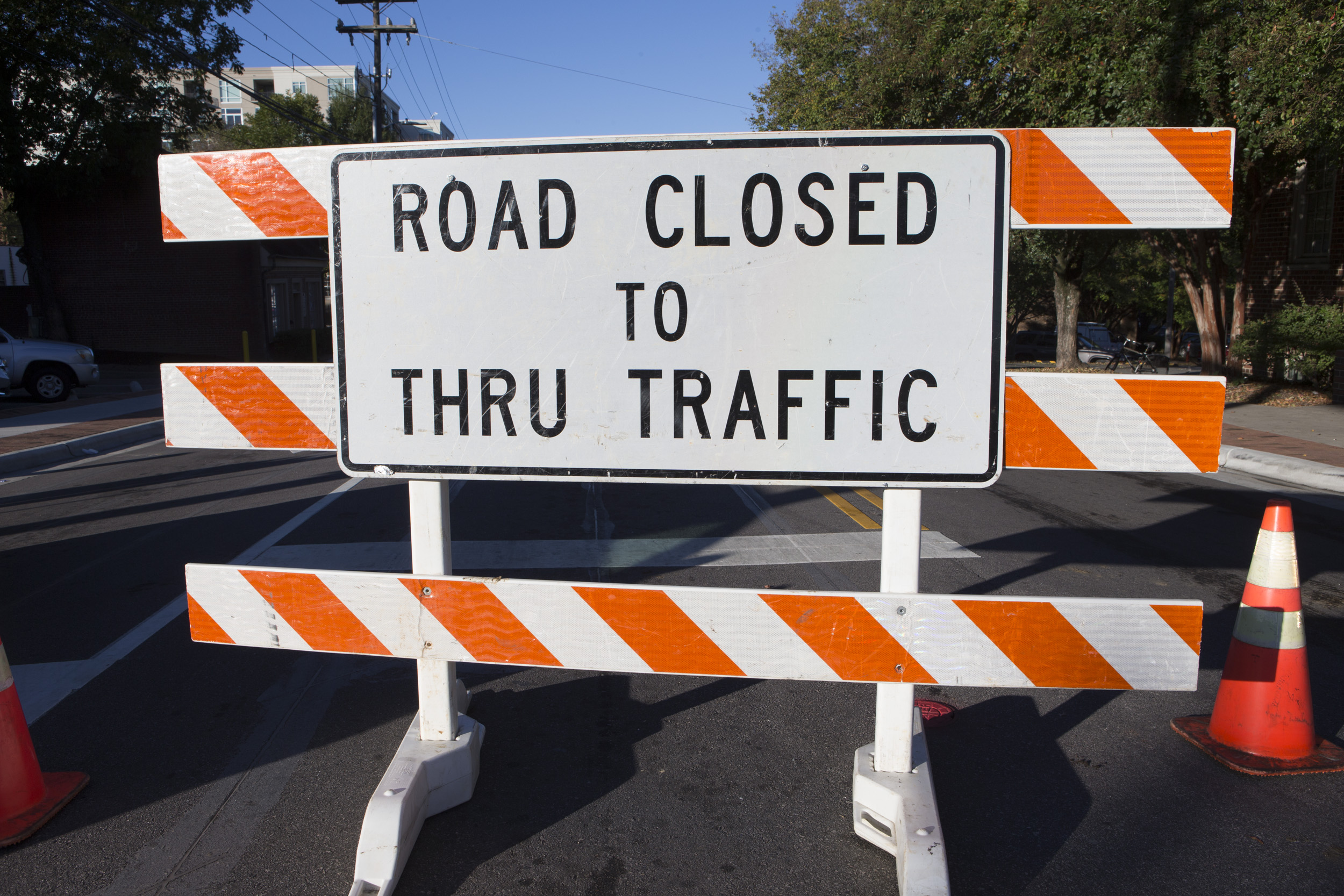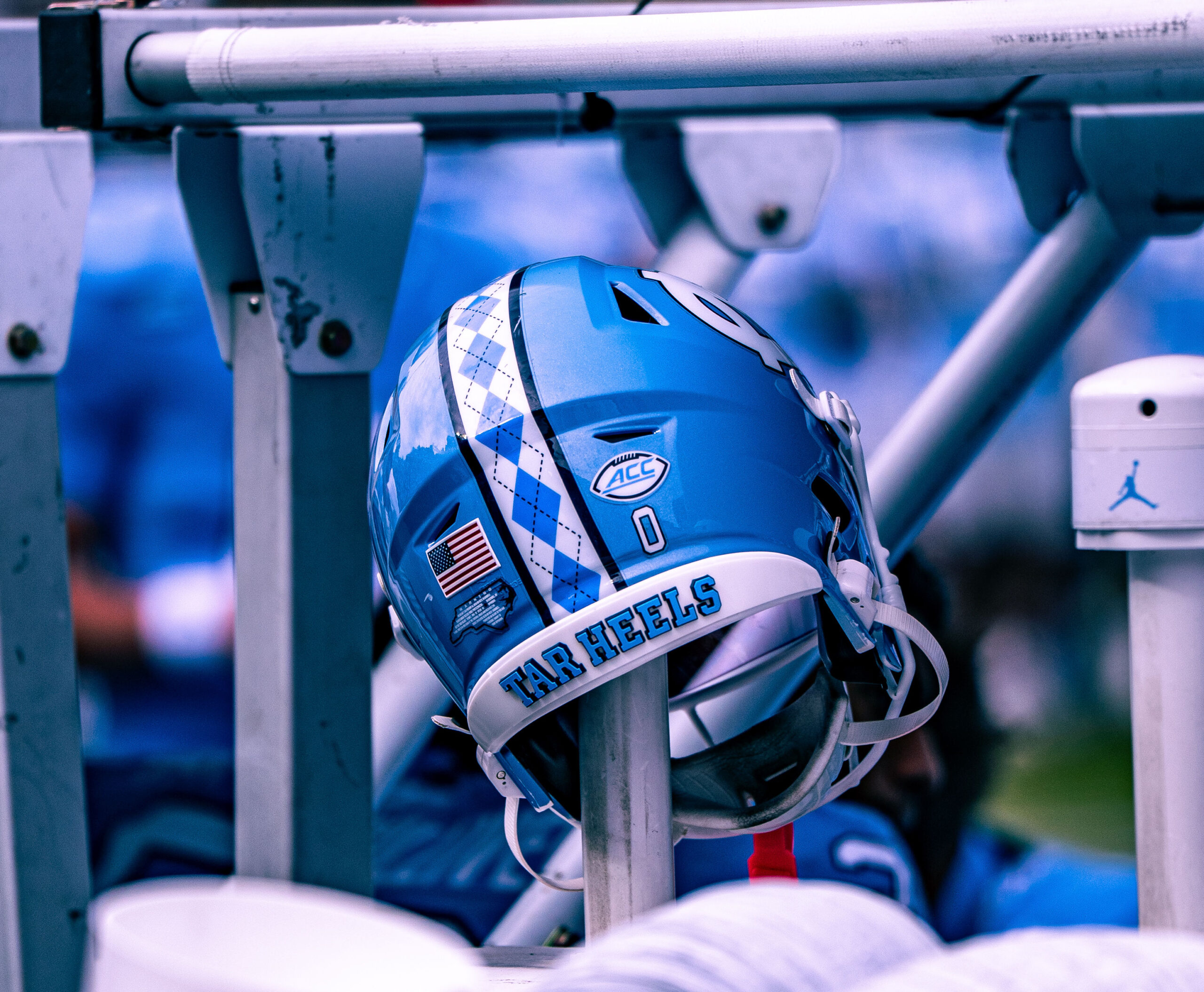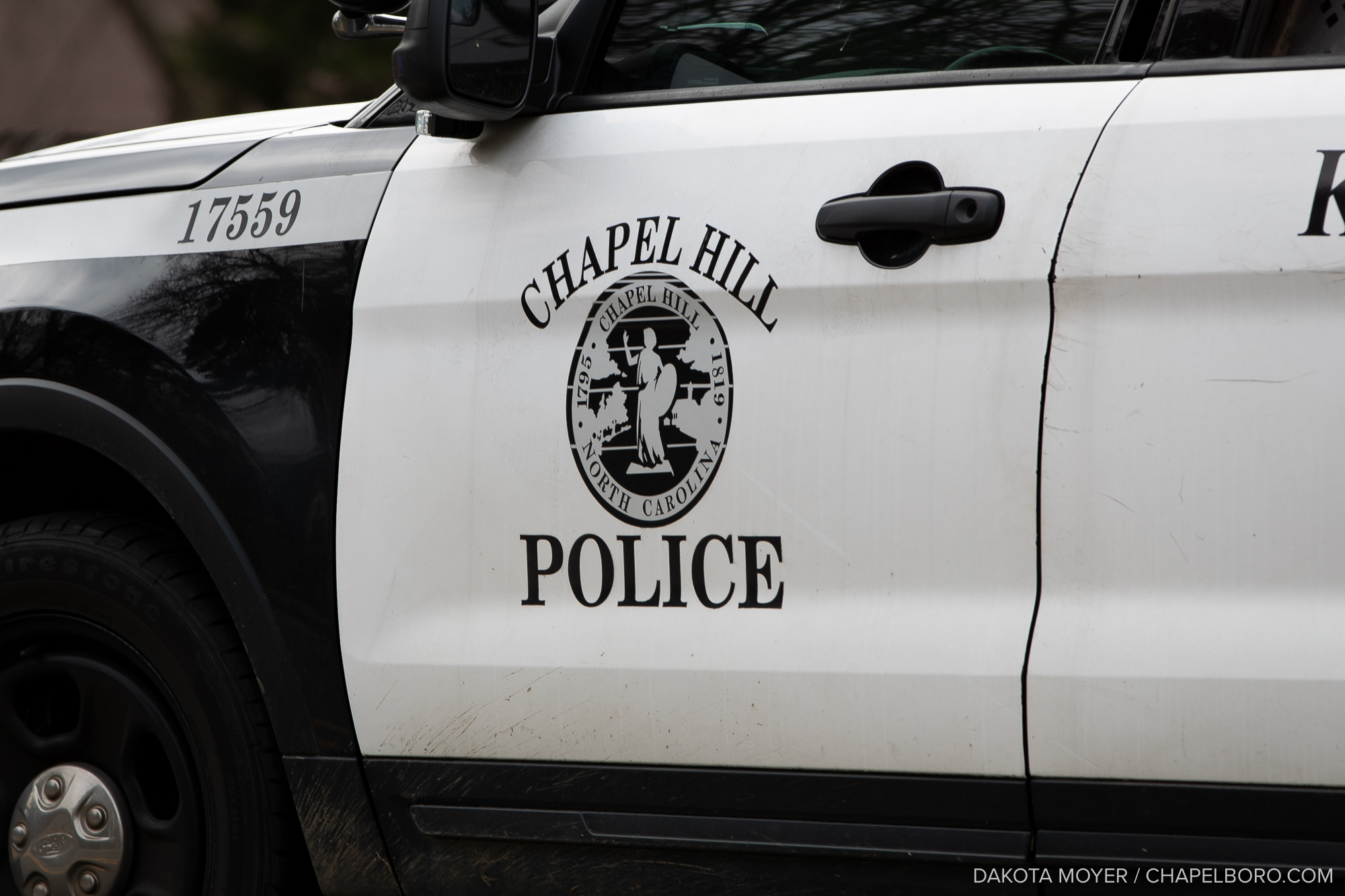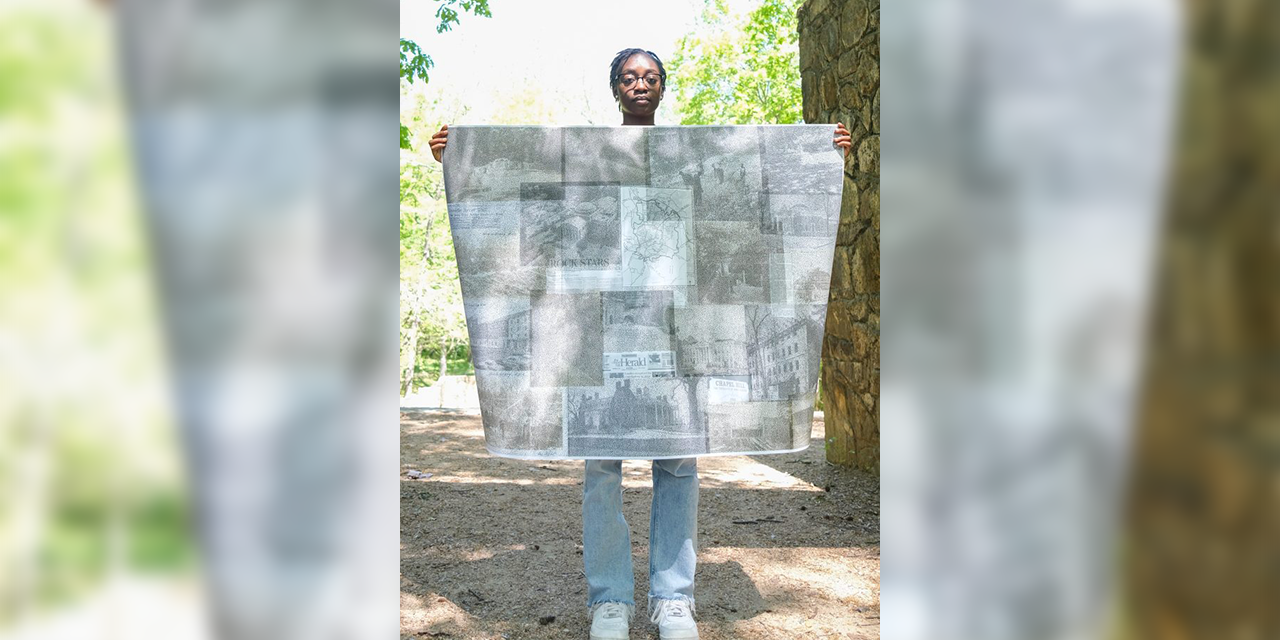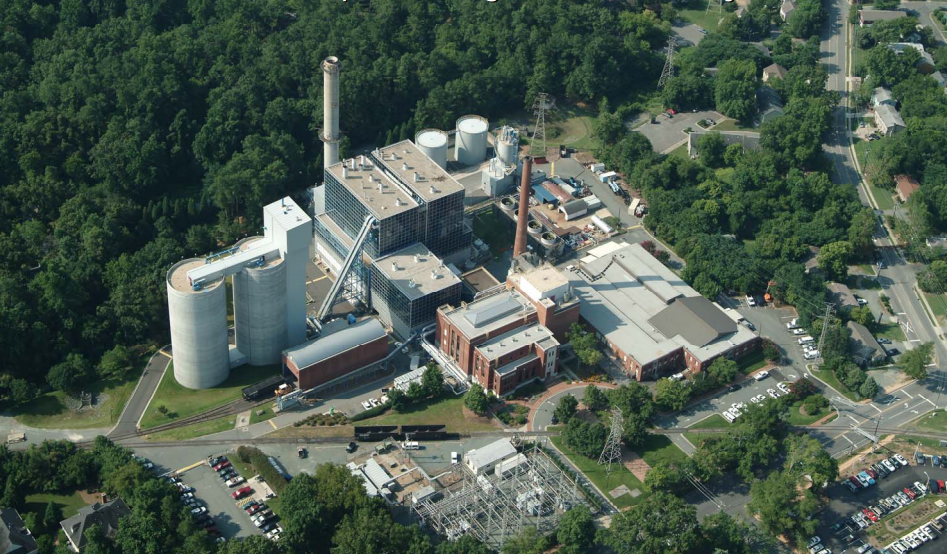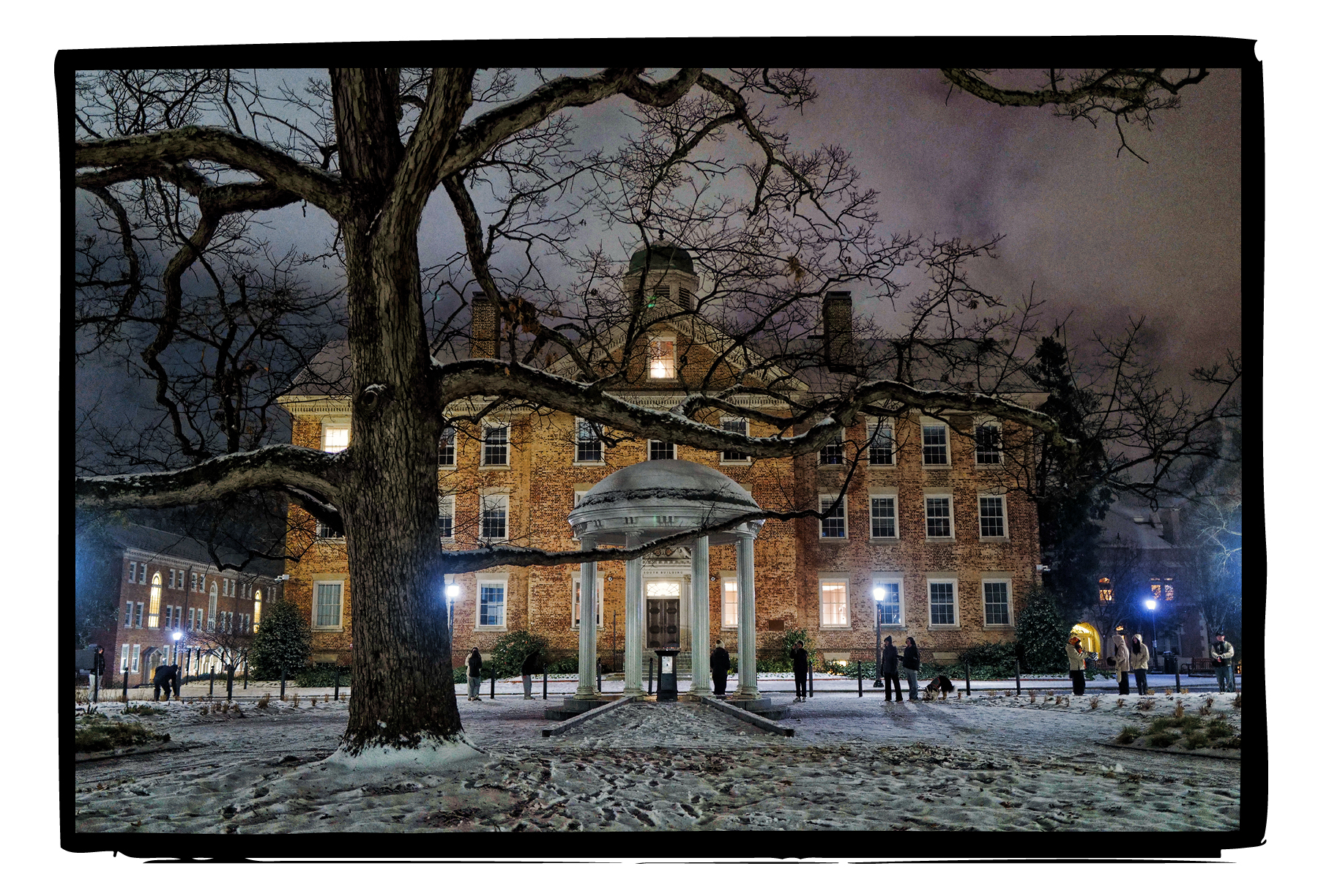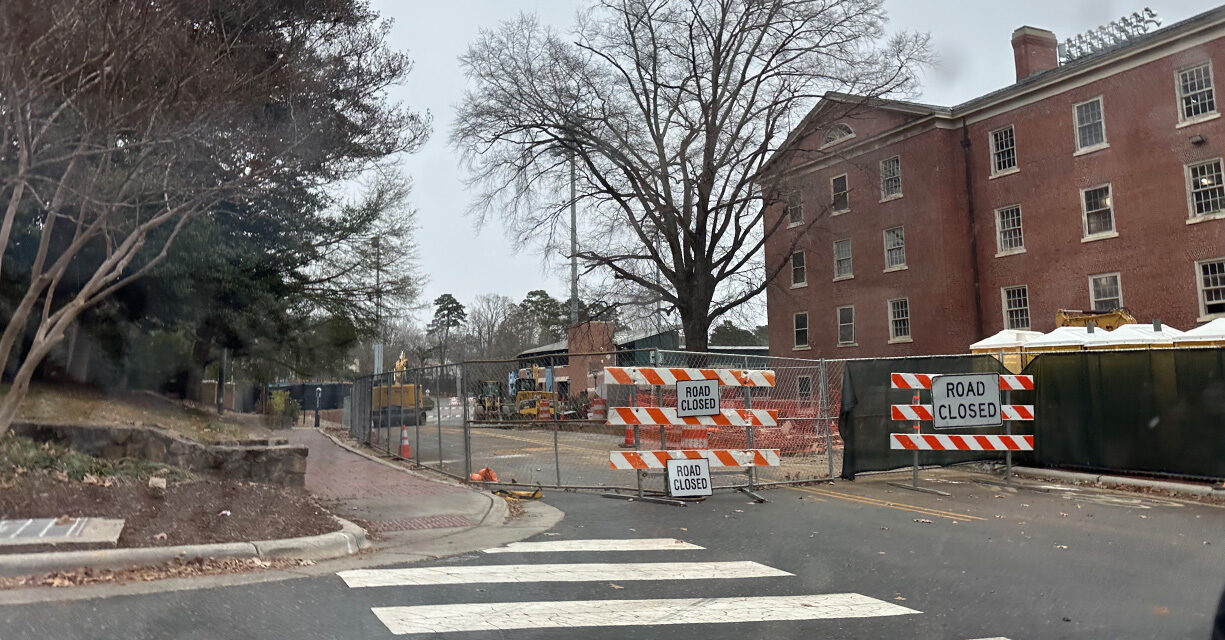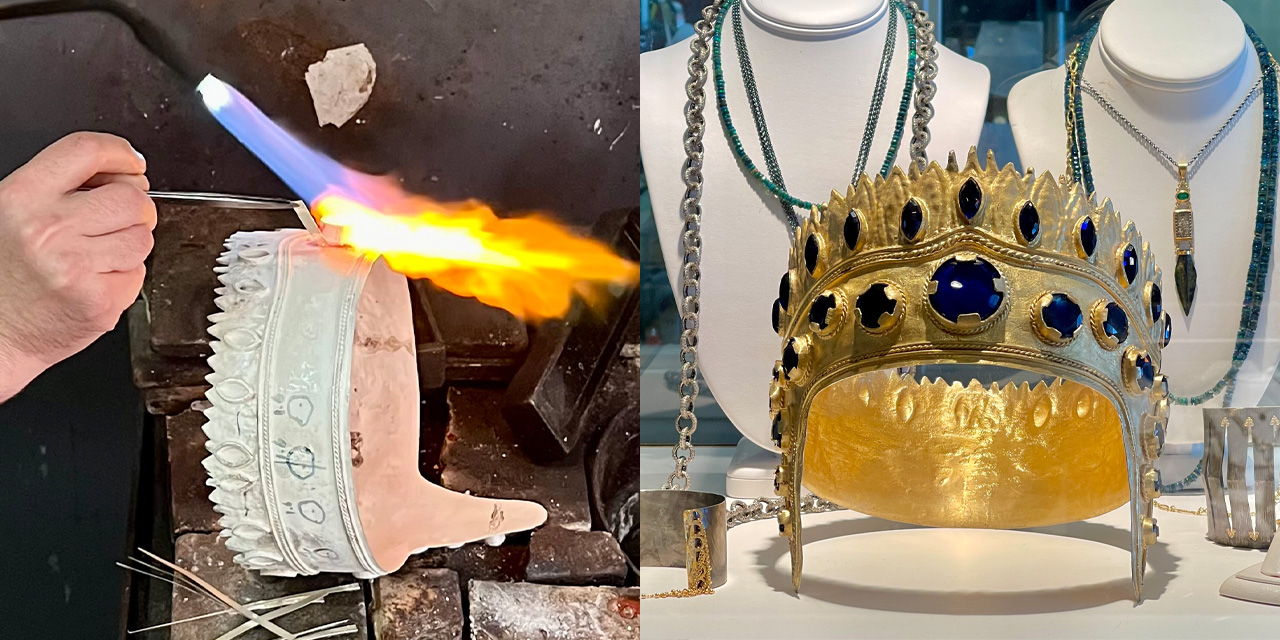As students and families were milling around the new Students Stores at UNC on Thursday, campus leaders gathered to celebrate $1 million being donated to fund scholarships.
The money was a signing bonus – or “down payment” as it was referred to on Thursday – from an agreement to privatize the operation of the Student Stores.
UNC Chancellor Carol Folt said this money would be going directly toward student scholarships.
“Need-based aid strengthens our institution, and it creates a better future,” Folt told the crowd on Thursday, “not only for our students, but clearly for the state of North Carolina and, of course, for the world.”

Barnes and Noble College presenting UNC with a $1 Million check as part of agreement to privatize Student Stores. Photo via Blake Hodge.
UNC vice provost for enrollment and undergraduate admissions Steve Farmer said the university was “virtually unmatched” by public universities in meeting the full demonstrated need of undergraduates who qualify for federal aid.
“It is not an easy commitment to keep, and that’s why others no longer make it,” Farmer said. “But it’s a commitment that we’re proud to keep, and it’s a commitment that we are determined to keep.”
Jesse Sykes is currently earning her master’s degree in Clinical Rehabilitation at UNC after receiving her undergraduate degree in psychology and neuroscience in Chapel Hill. Sykes grew up in Nash County and was a Carolina Covenant scholar during her undergraduate years, which meets the needs of low-income students without using loans.
Sykes is now continuing her education based off of the student stores’ scholarship funding.
“Student aid is not just an abstract concept,” Sykes said. “It can make the difference between staying in a small town in North Carolina your whole life, or going out into big cities or other parts of the world and making a difference.”
Farmer said as an overall, general figure, the $1 million would immediately provide “significant help” to between 50 and 75 students depending on the varying need of those students.
The decision to privatize student stores was part of a 10-year, $30 million agreement between UNC and Barnes and Noble College.
The move was not made without criticism. Some saw this privatization of a valued portion of the university’s operation as part of the corporatization of higher education.
Folt, on Thursday, said she felt that the number of those voicing opposition was declining as more members of the campus community saw the increased funding going toward scholarships.
“People worked so hard to make this not only for scholarship and aid, the prices for students are absolutely cheaper,” Folt said. “So students really like it. And the staff were given a very strong, positive support and almost everybody accepted it.
“I think that was really important.”
Folt said that the students were taking to the new system with rentals and online book orders both increasing by more than four times last year’s rate.

